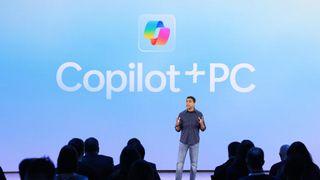Microsoft recently unveiled its latest innovation for Windows 11, an AI-powered feature called ‘Recall,’ designed to enhance searchability on the operating system. This new addition showcases Microsoft’s continuous efforts to integrate artificial intelligence into its products, further solidifying the company’s dedication to delivering cutting-edge technology.
With Recall, Windows 11 users can experience a significantly improved search functionality that enables them to find files, apps, and information more efficiently. This innovative feature utilizes machine learning capabilities to analyze and understand user behavior, thereby enhancing search results based on individual preferences and habits. By personalizing search results, Recall aims to provide a more tailored and intuitive user experience.
The AI-powered Recall feature also has the ability to learn from user interactions. By analyzing search patterns, frequently accessed files, and user feedback, Recall can adapt and improve its search algorithms over time, optimizing the search process for each individual user. This adaptive feature is a game-changer as it allows Windows 11 to become more intuitive and efficient, gradually becoming familiar with each user’s unique requirements and preferences.
Moreover, Recall leverages the power of Microsoft Graph, a vast knowledge graph that includes data from various Microsoft services such as Office 365, Outlook, and OneDrive. By integrating this comprehensive database, Recall can provide users with more comprehensive search results, bringing together information from multiple sources to increase productivity and enable faster access to relevant data.
The introduction of Recall aligns with the overarching goal of Windows 11, which prioritizes streamlining and simplifying the user experience. With its improved search capabilities, users can now rely on Windows 11 to quickly find and access files, applications, and information without navigating through numerous menus and folders. This feature not only saves time but also reduces the frustration often associated with searching for specific items.
Alongside the reveal of Recall, Microsoft also confirmed the hardware requirements for Windows 11. The company aims to ensure that users receive the best possible experience while using the new operating system. The minimum hardware specifications include a compatible 64-bit processor, 4GB of RAM, and 64GB of storage. Additionally, Windows 11 requires computers to have a DirectX 12-compatible graphics card or an integrated GPU with a WDDM 2.0 driver.
By establishing these hardware requirements, Microsoft ensures that Windows 11 can take full advantage of its latest features while providing a smooth and seamless user experience. While some older devices may not meet these specifications, Microsoft continues to support Windows 10, allowing users to opt for a trusted and stable operating system if necessary.
The introduction of Recall, paired with the confirmation of hardware requirements, signals Microsoft’s commitment to pushing the boundaries of innovation while maintaining compatibility and usability. Through the use of AI and machine learning, Windows 11 aims to transform the way users interact with their devices, making the operating system more intuitive, efficient, and personalized.
As Windows 11 begins to roll out to users, it is clear that Microsoft has taken significant strides towards redefining the capabilities of its operating system. With Recall and other groundbreaking features, Microsoft continues to shape the future of technology, making Windows 11 a promising leap forward in enhancing productivity and delivering an exceptional user experience.
Hey Subscribe to our newsletter for more articles like this directly to your email.
